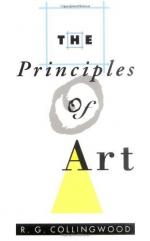|
This section contains 7,070 words (approx. 24 pages at 300 words per page) |

|
SOURCE: "Collingwood on Eternal Problems," in The Philosophical Quarterly, Vol. 1, No. 3, April, 1951, pp. 228-41.
In the following essay, Harris discusses Collingwood's ideas on the possibility of an "ultimate standard" of philosophical truth.
The notion of eternal truth is as old as philosophy itself, and, surely, of all things, truth can hardly be subject to alteration. The standard by which we judge must be an ultimate standard, for, if it were not, no claim even to relative truth could be justified; and no such standard could be changeable, for, if it were, the claims of the successive competitors for our allegiance would be utterly baseless. The attempt, so often made, to base them on psychological needs is in the highest degree question-begging, for the theory, which determines those needs and the relation to them of the supposed standards, itself lacks authority unless it can be substantiated by reference to...
|
This section contains 7,070 words (approx. 24 pages at 300 words per page) |

|


